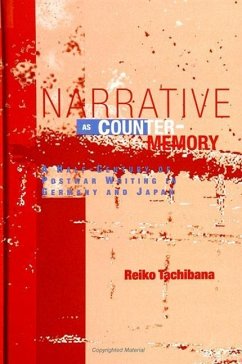A pioneering study of German and Japanese postwar fiction, providing a broad cultural basis for understanding a half-century of responses to World War II from within the two societies. CHOICE 1999 Outstanding Academic Books The wartime and postwar cultural histories of Germany and Japan show similar experiences of defeat, occupation, and then the reconstruction of powerful societies. Little previous research has examined the literary works that reflect these contacts and parallelisms. For the first time, this book offers an extensive comparative study of German and Japanese narratives that serve as a form of "counter-memory," in Foucault's phrase, for the two cultures. Rather than attempting to present objective or comprehensive views of history, these narratives draw upon personal memories to offer subjective, selective, and individualistic reports. They provide an alternative (or "counter-memory") to more official versions of World War II and its aftermath. Major writers such as Mishima Yukio, Ibuse Masuji, Oba Minako, Gunter Grass, Uwe Johnson, Christa Wolf, and the Nobel Prize winners Oe Kenzaburo and Heinrich Boll are set in the context of lesser-known writers, including a nine-year-old child, a medical doctor, a woman who served as a journalist, and a former prisoner, to provide a broad cultural basis for understanding responses to the war from within the two societies. This book combines a broad historical scope with detailed examinations of important individual texts, with both aspects securely set on a firm foundation of historical and literary scholarship. The rhythm of alternation between synthetic generalizations and close textual explication (yielding interpretive insights while providing lucid and economical exposition and summary) allows for carefully balanced and integrated comparisons.
Bitte wählen Sie Ihr Anliegen aus.
Rechnungen
Retourenschein anfordern
Bestellstatus
Storno


